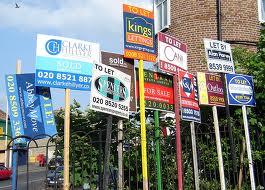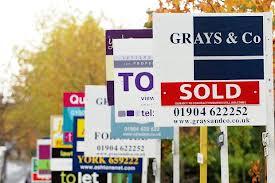Buying a brand new home built to exacting standards, the latest energy-efficient designs with a ten-year warranty, where could naive, trusting new homebuyers possible go wrong? Read on to discover the twenty most common mistakes made by Britain’s new home buyers and make sure you don’t become yet another victim of the UK housebuilding industry.
 1) Buying a new home because they can not because they should Various government schemes such as Help to Buy schemes make it easier and often the only financially possible way to get on the housing ladder. Being able to buy is not alone a good enough reason to buy a new home.
1) Buying a new home because they can not because they should Various government schemes such as Help to Buy schemes make it easier and often the only financially possible way to get on the housing ladder. Being able to buy is not alone a good enough reason to buy a new home.
2) Using the housebuilder’s recommended, suggested or nominated firm of solicitors
The number one mistake made by new homebuyers. Despite it being illegal for housebuilders to insist that buyers use a certain solicitor, it still occurs. One major plc housebuilder even pre-filled in reservation forms with their preferred solicitor! By using the housebuilder’s solicitor buyers are not only relinquishing control of the process to the housebuilder, they are actually putting themselves at a legal disadvantage by not having their interests represented. Issues include; buyers legally completing on unfinished houses, a buyer of a flat later discovered specifications had been changed and the length of lease reduced and being told that completion certificates and warranty documents had been received when they had not even been issued, due to unresolved compliance and warranty problems with the home.
3) Not having their new home independently professionally snagged and inspected
 The second biggest mistake new homebuyers make is not having their new home professionally snagged and inspected before they legally complete. It is a sad fact that around 96% of all new homes buyers will have defects and problems with their new homes after they have moved in. Many, if not all of these could have been prevented if the property had been properly inspected at each construction stage by both the housebuilder’s site management and warranty provider. It is therefore essential that new homebuyers use an independent professional to thoroughly snag and inspect their new home before they legally complete. This not only ensures it is, at the very least, fully completed before they pay for it, it also highlights all visible defects, snags and breaches of regulations and warranty standards. Unfortunately both the housebuilders and warranty providers cannot be relied upon to properly carry out the inspections and oversee remedial works to correct defects.
The second biggest mistake new homebuyers make is not having their new home professionally snagged and inspected before they legally complete. It is a sad fact that around 96% of all new homes buyers will have defects and problems with their new homes after they have moved in. Many, if not all of these could have been prevented if the property had been properly inspected at each construction stage by both the housebuilder’s site management and warranty provider. It is therefore essential that new homebuyers use an independent professional to thoroughly snag and inspect their new home before they legally complete. This not only ensures it is, at the very least, fully completed before they pay for it, it also highlights all visible defects, snags and breaches of regulations and warranty standards. Unfortunately both the housebuilders and warranty providers cannot be relied upon to properly carry out the inspections and oversee remedial works to correct defects.
4. Not doing any research regarding housebuilders or new homes before buying
Websites such as our sister site www.brand-newhomes.co.uk and various forums have a wealth of information available for the new homebuyer. This enables them to make a fully informed choice, aware of what can and does go wrong and what steps they can take to reduce disappointment and feelings of regret and resentment after moving in.
5. Paying too much – not getting a discount
All house builders have a price list but only a fool actually pays the full price. Site sales staff nearly always have “negotiables” they can offer buyers with discounts amounting to 5-10% off the full advertised price on certain plots at certain times of the year. In addition, many new homebuyers buy at or near the top of the market paying too much only to later watch as the resale value of their home plummets just as interest rates rise and the housing market crashes.
Continue reading →










 Ed Milband announced this week, that if Labour triumph in next weeks’ election, he will abolish stamp duty for three years to help first time buyers buying homes costing up to £300,000. At this level, the maximum saving in stamp duty land tax will be £5,000. It is being claimed that 90% of first time buyers will benefit.
Ed Milband announced this week, that if Labour triumph in next weeks’ election, he will abolish stamp duty for three years to help first time buyers buying homes costing up to £300,000. At this level, the maximum saving in stamp duty land tax will be £5,000. It is being claimed that 90% of first time buyers will benefit.

